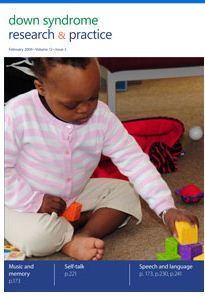Worth Repeating: The Importance of Evidence Based Practice in Down Syndrome Treatment

by: Sue Buckley
What is evidence-based practice?
In this issue we have several contributions that raise the issue of how we decide if a treatment, therapy or educational approach is evidence-based. I have spent my career advocating evidence-based practice and I was recently challenged to explain what I mean. This is not just a research issue, it is an issue which confronts parents, physicians, teachers and therapists daily and there is not a simple answer.
Rigorous scientific evaluation
Researchers and physicians rightly seek the gold standard for an evidence-based approach. This is a randomized control trial like the trial for the effects of giving vitamins and other supplements[1] described in the Research Highlights on page 175. They want to know that a treatment is both effective and safe. This requires, at a minimum, a control group who do not get the treatment and an experimental group who do. For effectiveness we need to see the experimental group doing better than the control group. To ensure the groups are comparable at the start, ideally, children are allocated to one or other group on a random basis. Randomization is important to try to ensure that any other factors which might influence outcomes are balanced out across treatment groups (for language and cognitive development these could be how stimulating the child’s environment is, the number of brother and sisters, the educational levels or wealth of parents, quality of local early intervention services). These other factors may also be measured and their influence actually investigated if the study groups are large enough to allow this.
Read the Rest of this Editorial/Article on Down Syndrome Education Online.org
PediaStaff is Hiring!
All JobsPediaStaff hires pediatric and school-based professionals nationwide for contract assignments of 2 to 12 months. We also help clinics, hospitals, schools, and home health agencies to find and hire these professionals directly. We work with Speech-Language Pathologists, Occupational and Physical Therapists, School Psychologists, and others in pediatric therapy and education.
